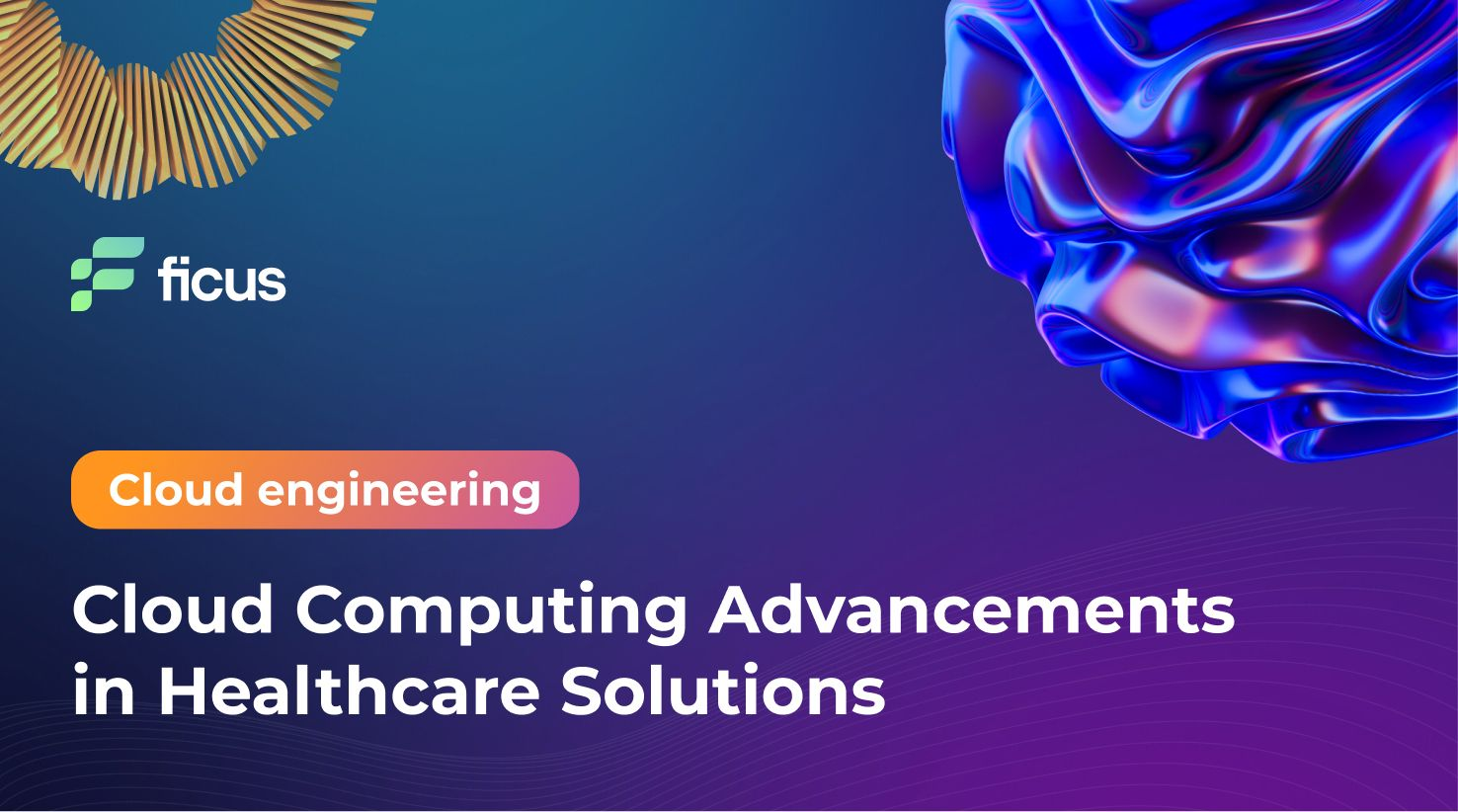Cloud computing has become the optimal IT infrastructure in the healthcare sector. According to Veritas, the adoption rate of cloud computing in healthcare is 83%, making it the backbone of core operations and an integral part of EMR, Telehealth, IOMT, AI, and Big Data applications. This transformation goes beyond siloed medical applications to deliver patient-centric services. By breaking down geographic constraints, it reveals the power of data analytics to inform treatment decisions, promoting the intelligent use of data across health systems. The overarching goal is clear: to create an intelligent healthcare industry that delivers unrivaled quality of care and universal health coverage.
- Cloud computing transforms healthcare, providing patient-centric services and breaking geographical constraints
- Cost efficiency, scalability, and enhanced patient experiences redefine healthcare operations positively.
- Overcoming security concerns and regulatory compliance, cloud technology proves indispensable for healthcare
What Is Healthcare Cloud Computing?
Cloud computing in healthcare involves the use of remote servers accessed via the Internet to manage healthcare-related data. In contrast to establishing an on-site data center, cloud computing in healthcare presents a modern solution for collecting, analyzing, presenting, storing, and protecting data—an essential resource in industries where data is integral to almost every process. With technological advances in healthcare, including remote monitoring, natural language processing APIs, telemedicine, and cloud computing, healthcare will continue to evolve to meet the demands of new digital health systems, providing multiple benefits for years to come.
The convergence of information and communication technologies with medical science is creating a new era of healthcare.
Bill Gates
Importance of Cloud Computing in Healthcare
In the evolution of healthcare, the importance of cloud computing in healthcare cannot be overemphasized. As a key force in the technological evolution of the industry, cloud computing offers a myriad of benefits, from providing patient care to reducing operational costs and increasing accessibility. Recognizing their value, healthcare officials are aggressively adopting this transformative technology, resulting in a market size of $89.4 billion by 2027, up significantly from $39.4 billion in 2022. According to McKinsey, the potential for cloud computing and healthcare could generate $100-170 billion by 2030, defining the future of healthcare delivery.
How Cloud Computing is Used in the Medical Industry
In the medical industry, cloud computing in healthcare is transforming operations by providing secure data storage, real-time collaboration, and remote access. The strategic use of cloud computing optimizes healthcare systems, driving improved patient care, streamlined processes, and cost-effective solutions, ultimately changing the landscape with unprecedented efficiency.
Data storage
In the vast realm of healthcare data, accounting for a staggering 30% of all data stored globally, efficient storage and management are of paramount importance. Cloud computing in healthcare is emerging as the optimal solution for organizations struggling with this deluge of data. Unlike traditional fixed hardware, the cloud allows terabytes of healthcare data to be stored and processed with unrivaled speed and efficiency. This dynamic environment connects and processes data from multiple sources, enabling easy access, real-time sharing, and robust backup capabilities, highlighting the multifaceted benefits of cloud computing in healthcare for safe and efficient data storage.
Telemedicine
The emergence of telemedicine, driven by the application of cloud computing in healthcare, marks a transformational trend that provides remote access to healthcare services. By utilizing cloud-based solutions, communication with healthcare professionals becomes seamless, transcending geographical barriers. This is especially important for people with mild to moderate symptoms, people with disabilities, or those living in remote areas where there are no medical facilities. Cloud telemedicine goes beyond consultations to include remote diagnostics, virtual surgeries, and innovative features such as medication tracking and health monitoring. With the help of wearable IoT devices, doctors can remotely check patients’ vitals while responding to alerts quickly, which shows the life-saving potential of cloud computing and healthcare in telemedicine.
Advanced Analytics
In healthcare, leveraging medical data to gain deep insights is critical, and cloud computing in healthcare serves as the foundation for advanced analytics. With this synergy, healthcare professionals can quickly utilize huge amounts of data through fast data processing technologies. The integration of artificial intelligence and machine learning enabled by cloud computing and healthcare systems enhances predictive capabilities. These technologies help predict disease outbreaks, support medical research, proactively identify risks, uncover the causes of disease, and find optimal treatments. Addressing misdiagnosis, smart algorithms analyze complex patient medical data, eliminating errors and enabling early detection of diseases. This innovative approach ensures personalized patient care and effective treatment tailored to each individual case.
Hospital management
Cloud computing is changing hospital management by offering healthcare facility managers a myriad of tools to improve various aspects. With easily accessible centralized data storage and a network of connected devices, healthcare facilities can track patients in real-time and optimize staff and supply chain management. This revolutionary technology provides a comprehensive, real-time view of hospital operations over the Internet. Physicians can access real-time data, efficiently manage hospital inventory and workflows, and automate routine tasks, reducing healthcare worker fatigue. Adopting cloud computing in healthcare not only optimizes hospital processes but also contributes to a more efficient and sustainable healthcare system.
Discover how Ficus Technologies empowers healthcare with cutting-edge cloud solutions.
Contact UsBenefits of Cloud Computing in Healthcare
Having explored the major applications of cloud computing in healthcare, let’s take a look at its benefits within the healthcare system. The strategic use of cloud computing in healthcare not only optimizes operations but also opens up a host of benefits, from improved patient care to increased efficiency and cost savings.
Cost efficiency
Utilizing cloud computing in healthcare is a financial advantage because on-demand infrastructure eliminates the need for expensive in-house hardware. Cloud providers offer unrivaled flexibility and massive amounts of data storage at a modest cost, providing a smart financial approach. By leveraging powerful computing capabilities, healthcare organizations benefit from continuous service innovation. Cloud providers take care of technical upgrades, maintenance, and related tasks, relieving healthcare organizations of burdensome responsibilities and delivering significant operational cost savings, contributing to a cost-effective and future-ready healthcare ecosystem.
Unparalleled scalability
In the evolving healthcare industry, the need for flexibility and responsiveness to industry requirements is paramount. Cloud computing in healthcare provides unprecedented scalability, allowing storage and network requirements to be easily adjusted to meet the specific needs of an organization. This flexibility allows healthcare facilities to scale up during peak seasons, optimizing resources to meet growing patient loads and scale down smoothly during quieter periods, minimizing costs. Unlike on-premises systems that require the purchase of expensive hardware, cloud-based solutions offer a cost-effective approach, allowing organizations to select and adapt their resources as needed, ensuring optimal scalability and efficiency.
Enhanced patient experience
The integration of cloud computing in healthcare heralds a new era of healthcare services by improving patient satisfaction. Healthcare organizations using cloud technology are gaining a competitive advantage by providing personalized, transparent, and convenient services. Cloud-based telemedicine provides remote consultations, allowing patients to receive medical care at home, bypassing the need to visit hospitals and wait in long lines. With cloud computing using healthcare applications, patient portals, and wearable devices, medical care becomes highly personalized. Cloud technology democratizes data, engaging patients in their care, promoting education, and ultimately improving the overall quality of patient care.
Data-driven decision making
In the healthcare industry, the convergence of cloud computing and healthcare paves the way for the use of big data analytics, artificial intelligence, and ML. This synergy enables rapid processing of huge data sets and provides valuable insights in minutes. The use of cloud computing in healthcare facilitates data-driven decision-making, improving the quality of healthcare services and aligning them with business goals. Technology integration simplifies routine processes, while analytics enable healthcare providers to plan carefully, allocate resources wisely, and manage facilities efficiently. This symbiosis brings healthcare into an era where informed decisions guide the industry to improve patient outcomes and operational efficiency.
Improved interoperability and collaboration of staff
The integration of cloud computing in healthcare creates an interconnected environment where a variety of data, regardless of its origin and complexity, is collected, organized, and stored. This holistic system allows medical staff, including physicians and nurses, to easily access and view the data they need, speeding up tasks such as timely prescribing and treatment plans. Real-time technology updates allow physicians to easily track and view the medical records of other specialists, reducing interdepartmental communication and allowing medical professionals to focus on effective care delivery. The cloud transcends geographical boundaries, minimizing distances between medical professionals and enabling collaboration on complex medical cases, demonstrating the profound benefits of cloud computing and healthcare systems.
Risks of Cloud Computing in Medicine
On the other hand, implementing cloud computing in healthcare comes with potential challenges, including security issues, regulatory compliance, and the risk of system downtime. However, these challenges can be overcome, so let’s take a look further.
Security concerns
The main reason preventing the widespread adoption of cloud computing in healthcare is security concerns. Given the sensitivity of healthcare data, the specter of a data breach looms large, with potential financial and reputational consequences. However, if you look at the situation from the other side, the outlook looks more optimistic. Reputable cloud computing and healthcare providers prioritize security by implementing layered privacy measures and closely monitoring user access. Data protection is enhanced by encryption, two-step verification, and blockchain technologies, which provide strong protection against external threats and improve the overall security of healthcare data in the cloud.
Compliance with data-regulatory standards
In the healthcare industry, compliance with strict security and privacy regulations such as HIPAA, HITECH, and GDPR is paramount. Medical organizations using cloud computing in healthcare must ensure that their data hosted in the cloud is compliant with these data regulation laws. Choosing a trusted cloud provider with robust security features makes it easier to meet basic security standards and quickly adapt to changing regulatory requirements. This strategic approach not only enhances data security but also emphasizes the key role of cloud computing and the healthcare system in healthcare regulatory compliance.
System downtimes
Despite the increasing reliability of cloud computing in healthcare, concerns remain about the potential loss of data and system management during provider downtime. Implementing contingency plans becomes mandatory in such scenarios. Diversifying reliability by not depending on a single cloud provider or opting for hybrid cloud solutions is becoming a smart strategy in medical cloud computing and healthcare systems. This proactive approach not only eliminates concerns about system downtime but also emphasizes the strategic flexibility and resilience inherent in healthcare cloud solutions, reinforcing the overall benefits of healthcare cloud computing.
Conclusion
In conclusion, the transformative impact of cloud computing in the healthcare system is evident, reshaping the industry’s landscape and ushering in a new era of patient-centric, efficient, and technologically advanced healthcare services. The widespread adoption of cloud technology, encompassing core operations, EMR, Telehealth, IOMT, AI, and Big Data applications, signifies its pivotal role in breaking geographical barriers, enabling intelligent data utilization, and fundamentally enhancing the overall quality of care within the healthcare system. While challenges such as security concerns, regulatory compliance, and potential system downtimes exist, proactive measures and advancements in cloud computing technology ensure that the benefits far outweigh the risks, positioning cloud computing as the cornerstone of a smart and sustainable healthcare system.
At Ficus Technologies, we understand the critical intersection of cloud computing and the healthcare system, and our expertise lies in providing tailored solutions to maximize the benefits of cloud technology for healthcare organizations. Whether it’s optimizing data storage, enhancing interoperability, or ensuring compliance with data-regulatory standards, Ficus Technologies offers comprehensive services to harness the full potential of cloud computing in the healthcare system. With our innovative solutions, we empower healthcare providers to deliver superior patient experiences, make informed data-driven decisions, and navigate the evolving landscape of cloud computing in the healthcare system with confidence.
Cloud computing serves as a transformative solution to numerous healthcare challenges. One major pain point it addresses is the demand for efficient data management. By providing scalable and secure storage solutions, cloud computing enhances data accessibility while minimizing the risk of loss or breaches. It tackles the financial burden associated with on-premises infrastructure, offering cost-effective alternatives. Additionally, cloud technology facilitates real-time collaboration among healthcare professionals, overcoming geographical barriers. It ensures seamless integration and interoperability of medical data, promoting better-informed decision-making. Ultimately, cloud computing in healthcare optimizes processes, improves patient care, and fosters innovation in the rapidly evolving healthcare landscape.
Cloud computing’s popularity for data storage stems from its unparalleled advantages. It provides a scalable, flexible, and cost-effective solution compared to traditional on-premises storage. Cloud storage eliminates the need for extensive physical infrastructure, offering on-demand resources that can be easily adjusted to accommodate varying data volumes. The pay-as-you-go model allows organizations to pay only for the storage they use, optimizing cost efficiency. Additionally, cloud storage ensures data accessibility from anywhere with an internet connection, promoting collaboration and flexibility. Robust security measures, including encryption and regular backups, enhance data protection, making cloud computing a reliable and convenient choice for storing vast amounts of data.








